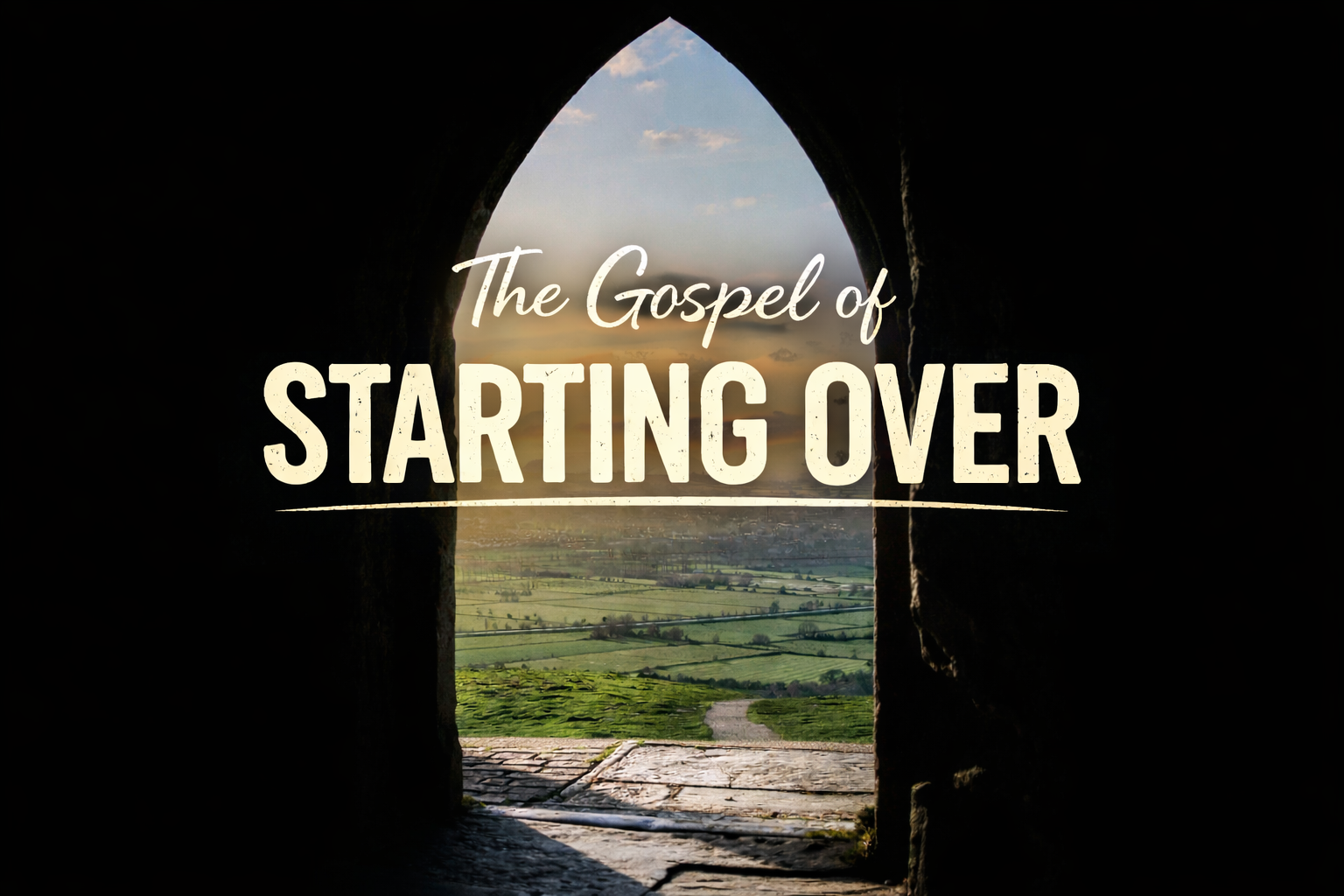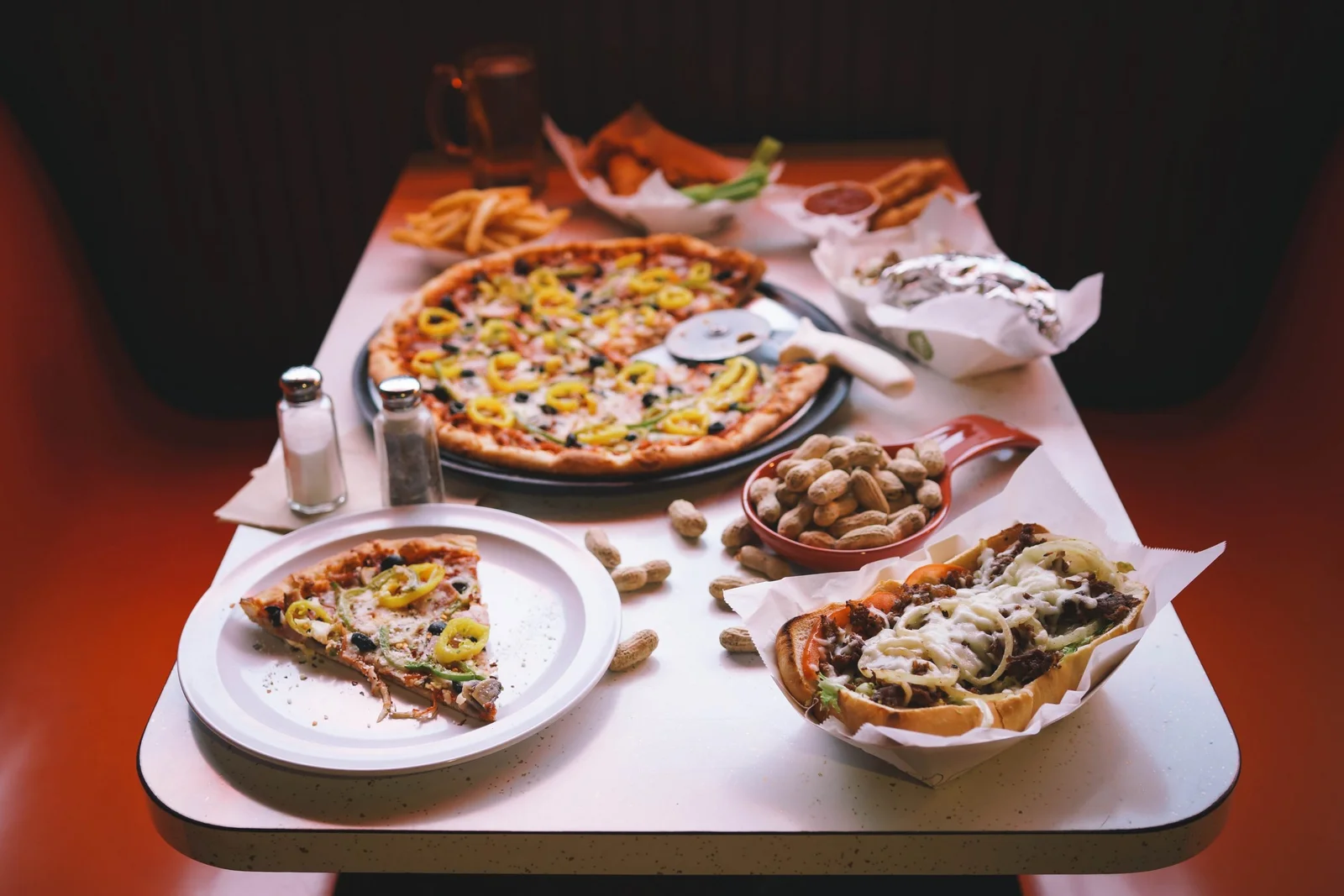Beginning in my teen years I’ve had a love/hate relationship with food. This is the time of life when most women (and plenty of men) start becoming self-conscious about weight and physical appearance. I was no exception, and began interacting with food as alternately a tool and a weapon. I’m not naturally slender and tend to gain weight easily, so the way I felt about myself was heavily tied to the way I was eating. I would overeat as a tool to self-soothe or eat very strictly in an effort to lose weight. Then food would quickly become a weapon wielded against me as a capricious master, one that I could never fully control. Either I would be “good” during a period of discipline and self-control, or I would eventually start being “bad” and eat more than I ought. My litmus test on the good/bad scale was always my weight. My worry was not about living in freedom as a steward of God’s good creation, but about being thin and “good” in the eyes of our culture.
It wasn’t until graduate school where I had to attend an Overeaters Anonymous meeting for an addictions counseling class that I recognized that in many ways I was a slave to food. As I listened to the group members share about their thoughts and impulses, I saw myself in a mirror. Food was controlling my life by defining the way I viewed myself. I was consumed by trying to not overeat and then by guilt if I ate too much. As I thought about the 12 Steps, I knew that I had to apply the first two to myself:
- We admitted we were powerless over our addiction—that our lives had become unmanageable.
- Came to believe that a Power greater than ourselves could restore us to sanity.
This was a turning point in my life. I stopped seeing my relationship with food as being defined by weight, and saw it defined by sin. My inability to treat food as a good gift from God had caused me to abuse it and use it to meet my own needs and desires in selfish and unhealthy ways. This wasn’t about being thin, this was about being holy.
Here’s a fun exercise, try word searching “feast” in a Bible website like Biblegateway.com. You’ll quickly see that all of humanity has this love/hate relationship with indulgence, and that God cares very much about it. Sin and idolatry come when we take something good that God has made for our flourishing, and try to exert our own control and lordship over it. We treat it as our own rather than a good gift to enjoy.
God gets frustrated with the idol of self-indulgence (or restriction and subsequent abuse of our bodies) because we are abusing what is His, and in so doing we pursue our own destruction. (Jer. 16:8, Hos 2:11) The Lord loves good food and feasting as a source of rejoicing and community.
7 How priceless is your unfailing love, O God!
People take refuge in the shadow of your wings.
8 They feast on the abundance of your house;
you give them drink from your river of delights.
9 For with you is the fountain of life;
in your light we see light.
Psalm 36:7-9
After all, Jesus told us to remember His death and sacrifice through a meal (Luke 22:14-23). Food itself is always very good, it’s only our twisted idolatry that leads us to use it in unhealthy ways.
So what would it look like to be free in the ways we relate to food? To be free from the self-righteousness of false control, and free from fear and shame? In my journey it started with Step 2. I admitted to Christ in prayer that I was powerless to control this abuse in my heart (if your struggle isn’t food, insert your habitual sin(s) that you can never fully control). I had to ask God to do what I could not do for myself: to rewire me to desire food in a better way. I didn’t need behavior modification, I needed a heart change.
Here’s the funny thing about admitting helplessness to God and asking for help…He actually helps us. Over time the Lord created changes in my impulses and thoughts, and the way I reacted to temptations in my environment. He routed out the sinful desires of my heart that were making me a slave, and replaced them with the freedom of humility. No longer do I fear food but am free to enjoy the fruits of God’s earth with gratitude and appreciation.
I still pray regularly for the Lord to help keep me from sin in my eating habits, it’s an ongoing process. But always I am motivated by the beautiful hope that Jesus teaches me how to feast with joy rather than shame. As the honored guest at the Wedding Feast of the Lamb (Matt. 22:1-14, Rev. 21), He invites me into a celebration of full hearts and rich communion.
On this mountain the Lord Almighty will prepare
a feast of rich food for all peoples,
a banquet of aged wine—
the best of meats and the finest of wines.
7 On this mountain he will destroy
the shroud that enfolds all peoples,
the sheet that covers all nations;
8 he will swallow up death forever.
The Sovereign Lord will wipe away the tears
from all faces;
he will remove his people’s disgrace
from all the earth.
The Lord has spoken.




